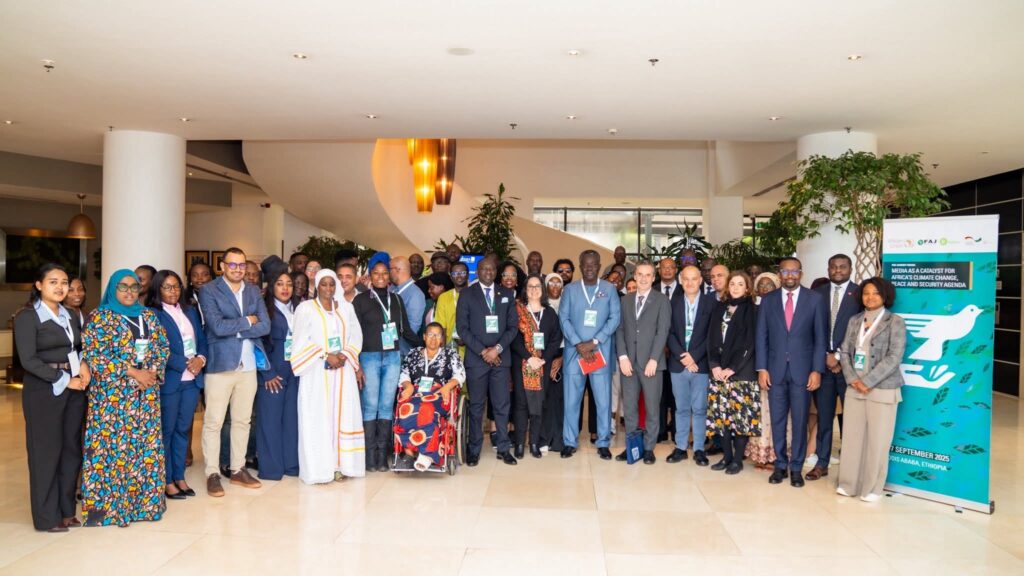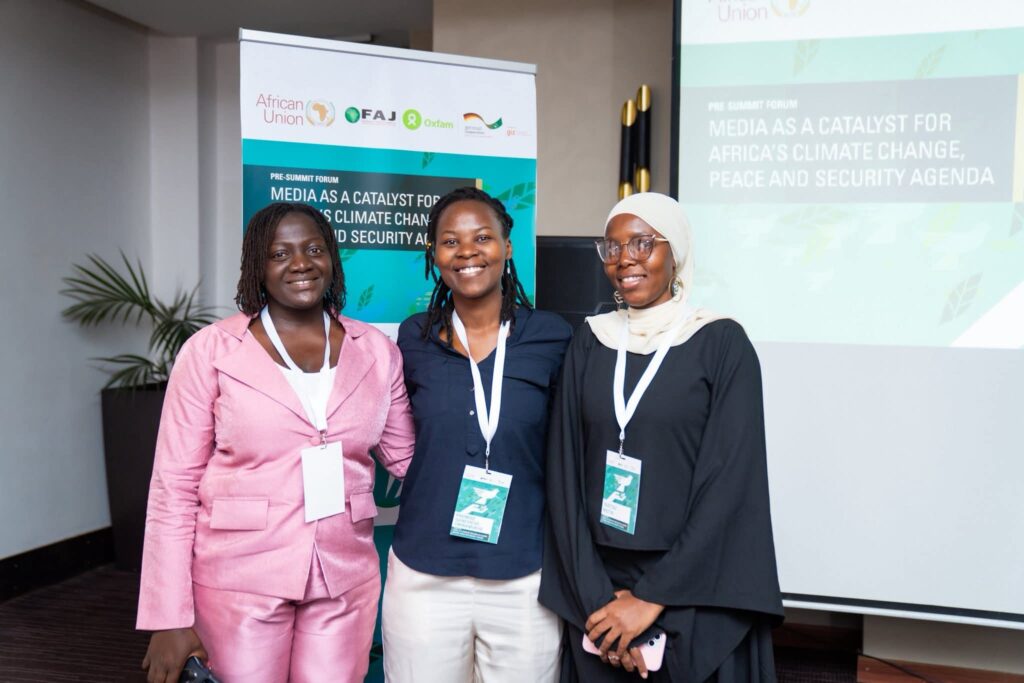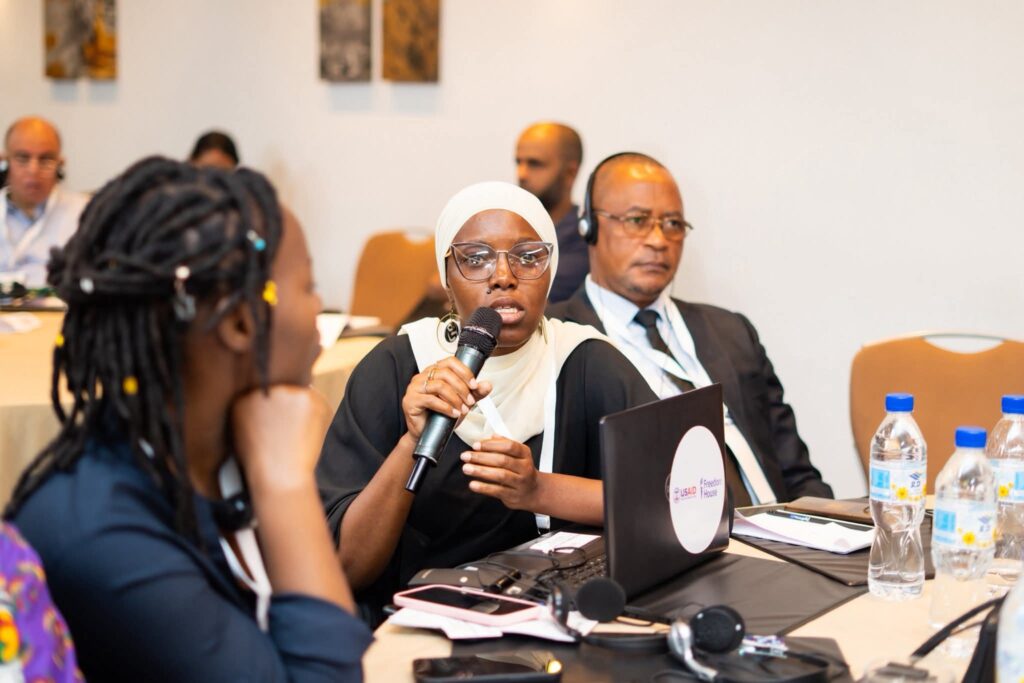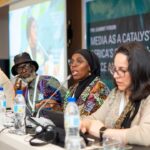African Media Urged to Drive Climate, Peace, and Security Agenda Ahead of COP30.
By Raymond Enoch
In the lead-up to COP30, a clarion call has been made for African journalists to step up as essential actors in aligning media narratives with policy objectives on climate, peace, and security. This message took center stage at the Pre-Summit Forum of the 2nd Africa Climate Summit (ACS2), currently underway in Addis Ababa.

The high-level forum, organised by the African Union Commission’s Political Affairs, Peace and Security Department (PAPS) and the Federation of African Journalists—with backing from Oxfam and GIZ—brings together policymakers, journalists, trade union leaders, and activists. Their collective aim: to craft Africa’s common position for COP30 and confront the rising tide of misinformation and fragmented climate storytelling.
In a compelling keynote address, media leaders stressed that African journalism must evolve from reactive coverage of climate disasters to proactive, people-centred storytelling. “Too often, coverage of climate disasters presents them as isolated tragedies, stripped of their wider implications for governance and peace,” the GPU President remarked.

The challenge, according to media stakeholders, lies not just in reporting but in shaping narratives that connect the dots between climate shocks, livelihood insecurity, migration, and conflict. This includes amplifying grassroots innovations by women, youth, and displaced communities—voices that are too often silenced or ignored.
“Journalism must be recognised as an agent of resilience,” the GPU President asserted, “not merely a mirror reflecting catastrophe, but a force that can inform early warning systems, expose inequities in climate finance, and drive inclusive policy responses.”

Panel discussions kicked off with a strong emphasis on empowering journalists to decode complex climate science and translate it into actionable public knowledge. Questions were raised about how media can challenge disinformation, and what capacity-building, partnerships, and safety mechanisms are most urgently needed—especially in fragile states with limited press freedom.
The forum also underscored that Africa’s voice in global climate forums is often marginalised by dominant narratives shaped outside the continent. A deliberate, well-supported journalistic agenda can ensure Africa’s positions are not only articulated in Addis Ababa but also heard in national parliaments, local communities, and international negotiations.
The GPU President is expected to speak in tomorrow’s panel session titled “Aligning Media and Policy Messages for ACS2 and Shaping Africa’s Common Position for COP30,” further elaborating on the media’s role as a catalyst for informed, conflict-sensitive climate action.
As the summit progresses, one message is clear: if Africa is to shape its own climate destiny, its journalists must be fully equipped, protected, and empowered to tell the continent’s story—truthfully, boldly, and with purpose.









